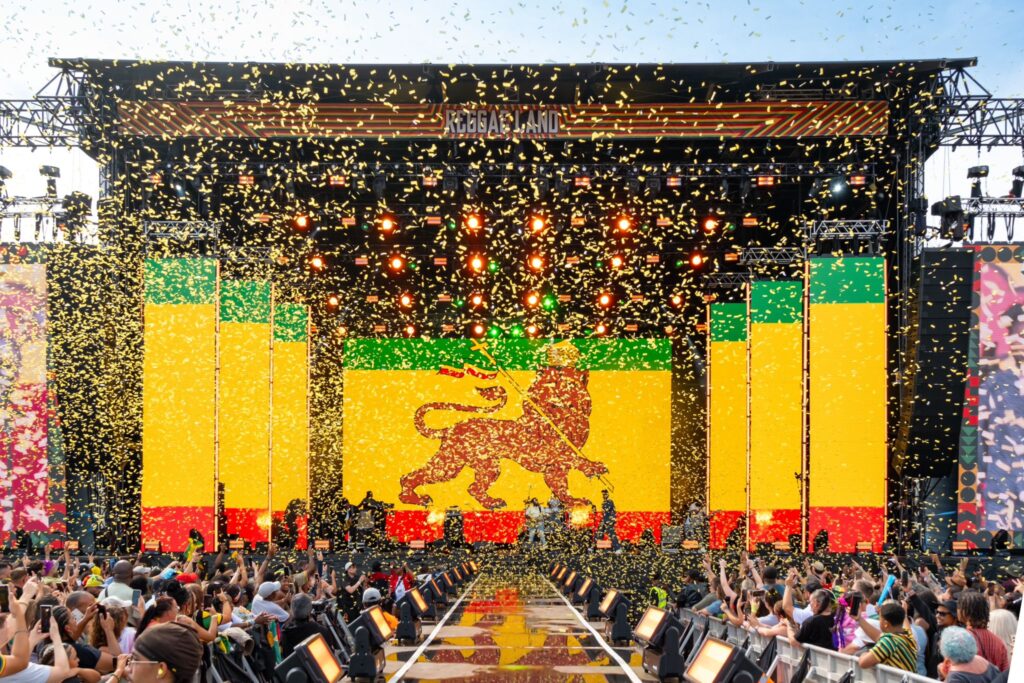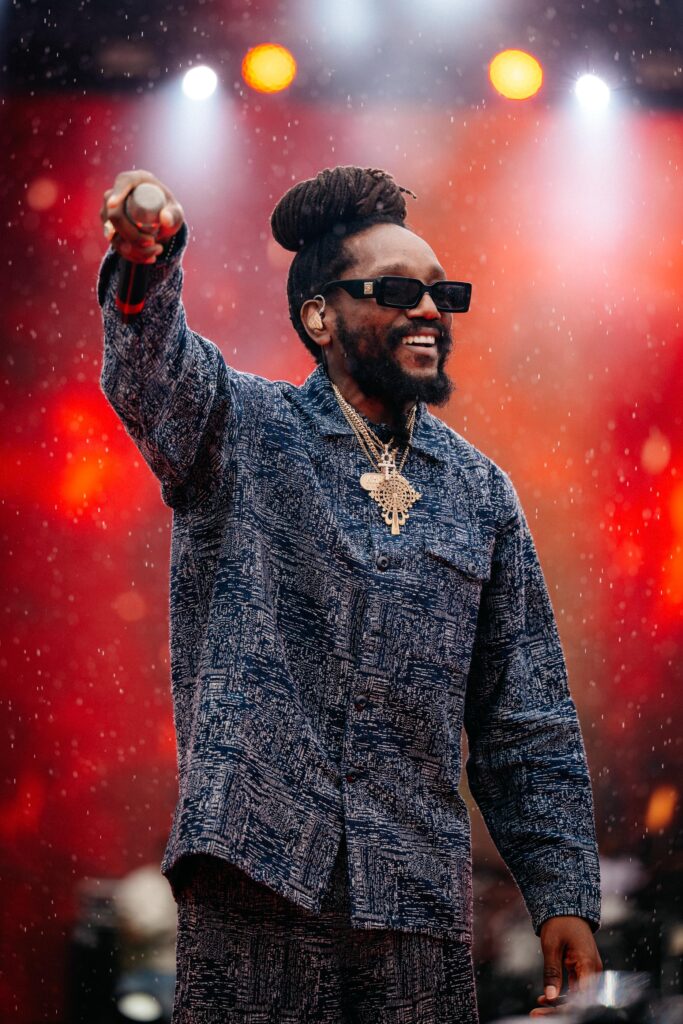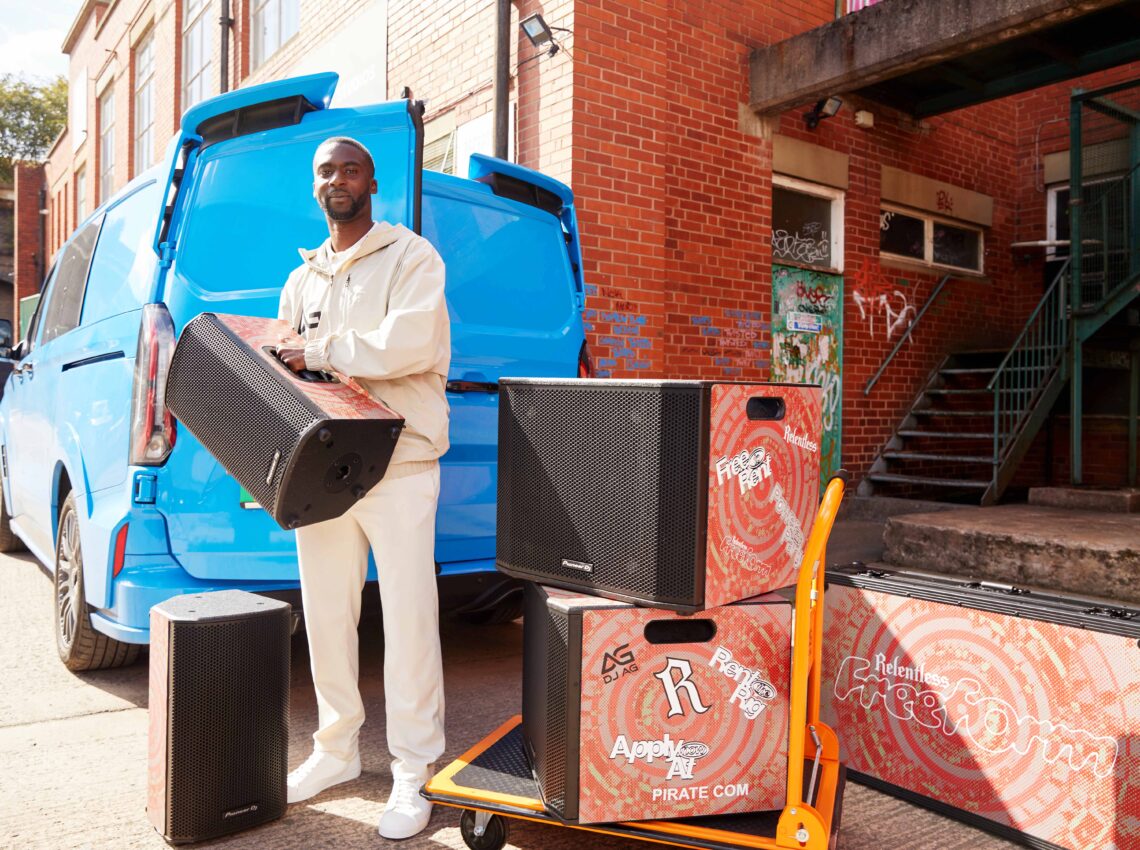Reggae Land 2025 Kabaka Pyramid [Interview]
![Reggae Land 2025 Kabaka Pyramid [Interview]](https://guap.co/wp-content/uploads/2025/08/WhatsApp-Image-2025-08-03-at-15.13.14-1140x850.jpeg)
Written by Joden Joseph, Holistic Psychotherapist and Wellbeing Journalist
Returning to Reggae Land for the second time, Jamaican-born Grammy Award–winning artist Kabaka Pyramid marked the festival’s fifth anniversary with an immaculate performance that set the stage ablaze.
The man they call the Lyrics Deity and Mystik Man delivered each verse with grit and conviction, his energy so potent it seemed to shift the weather itself, as rain clouds parted and glaring sunlight broke through, the crowd swayed in rhythm, basking in warmth summoned not just from the sky, but from the very essence of the performance. Fan favourites such as Red, Gold and Green, Believe, and Mi Alright stirred the crowd into a single, ancestral voice, a collective ceremony of sound and spirit. His sound is a deft fusion of roots reggae, dancehall, and hip hop, carrying the lyrical vigour of rap and his adopted Pan-African philosophy, rooted in Garveyism and Rastafari teachings. Though influenced by Sizzla, Peter Tosh and Wu-Tang Clan, his cadences remain unmistakably his own.
As an indigenous community, Rastafari have long endured international scrutiny, leaving many of Kabaka Pyramid’s predecessors alienated or blacklisted for standing firm in their beliefs. Kabaka, however, has managed to hold fast to Rastafari principles while remaining deeply measured, establishing himself as one of the most vital voices in contemporary reggae.
His music illuminates the realities of Jamaica’s inner-city communities, offering a counternarrative to the nihilism, violence, substance abuse and hypersexualisation so often crudely projected onto dancehall and, by extension, Caribbean culture. Alongside Chronixx, Protoje and Jah9, he became a cornerstone of the reggae revival — a movement that signalled a return to roots, Rastafari spirituality and conscious lyrical expression.
Kabaka’s message, steeped in Pan-Africanism, social justice and spiritual upliftment, resonate far beyond Jamaica. They trace an ancestral arc: from Africa’s cultural hearth, through the forced voyages of enslaved Africans, into the crucible of the Caribbean, and onwards to their descendants in Europe. For many Black Britons, reggae has long served as a groundation [1], a space to engage anti-colonial and decolonial ideas in practice. This has particular significance for men of Caribbean heritage, whose lived experiences echo those Kabaka narrates, including unemployment, systemic exclusion, disparities in education, disproportionate imprisonment and mental health detention.

Here, reggae remains more than music; it is a cultural anchor, shaping language, style, dance and the sound system traditions that continue to pulse through Britain’s carnivals and community life. Against this backdrop, Kabaka’s voice does not merely recall Jamaica’s turbulent and contested her/history, it affirms a shared struggle for dignity, healing and justice that stretches across continents.
Fresh from pouring every ounce of energy into the stage, Kabaka Pyramid welcomed the chance to speak. In our conversation, he spoke with humility yet conviction about his music, message and mission. He reflected on the guiding principles of Rastafari livity, and his deep commitment to holistic health and wellbeing.
How does it feel to be performing on Reggae Land’s mainstage at Europe’s second largest reggae festival?
Kabaka Pyramid: Nah, it’s joy. I feel like, from you see Reggae Land step out it’s like the best names in Reggae and I’m glad to be a part of it and associated with a great culture around reggae music. Caribbean culture, Jamaican culture, African – yuh nah mean. Everybody inna one […] that unified spirit.
And we know you go by the lyrics deity, yuh nuh mean. How important is the message in the music and artist’s overstanding of the culture and the conditions of the people?
Kabaka Pyramid: Very important because music changed my life. Music really set me pon Rastafari path, you know. Through – mainly through really Sizzla and his music. He did that for me, he was a big inspiration. So I always feel like if I go-do music, I want to have that effect on other people. So it’s really the motivation behind the message and the lyrics. Mi is a lyrical man because me couldn’t sing – mi never could sing so me just go lyrics. And then I just work my voice – develop my voice over the years, and we do what we do professionally – it’s a joy.
Definitely, definitely. I know [the song] Black, Woman and Child [by Sizzla] had a big impact on you, as well as Marcus Garvey’s Opinions and Philosophies which I hear in songs like ‘Believe’ and ‘Natural Woman’.
Kabaka Pyramid: Definitely. Yeah. 100 percent.
I’m a holistic man and I know you’re a yoga Practitioner; I know you’re an ital man [1]; and I see yuh deh pon Instagram doing pull ups. So, tell me what does livity mean to you and how important is it for one’s and one’s to hold fast to livity?
Kabaka Pyramid: It’s how you live your life, yuh nuh mean. Not just because we talk about it in the music but we affi really live it. You know we see if you live a certain way, you come out with diseases and all them summin’ there. We know that as you say, livity […] we see certain things and the only thing is to sustain life, and that’s really what it’s about. It’s how people live, sustain what we have and do things properly. We see certain things even as Black people [including the development of] diabetes, […] hypertension so we try to do the best we can do to preserve life.
With Reggae Land 2025 celebrating icons like Capleton, Chronixx, Mavado, and Dexta Daps, the festival continues to showcase reggae’s global sound and influence, shaping culture both at home and abroad. Reggae music is more than entertainment—it is an enterprise that transforms lives, creating opportunities for artists to rise and thrive while offering listeners a soundtrack that inspires, heals, and connects. If this year’s lineup is anything to go by, Reggae Land 2026 will be unmissable. Secure your place now: Reggae Land

[1] Groundation generally refers to the state of being grounded or connected to one’s roots, particularly within the context of Rastafarian culture.
[2] The esoteric knowledge of the Rastafari Livity includes the consumption of ital foods, often know by the slogan – “ital is vital”. This Afro-Caribbean practice would traditionally include strict adherence to naturally grown organic plant sourced produce, herbal remedies, and avoidance of excessive oils, salt, refined sugars or anything considered artificial.




![ZINO VINCI’S ‘FILTHY & DISGUSTING’EP BRINGS YOU TO THE CORE OF THE ARTIST [@ZinoVinci]](https://guap.co/wp-content/uploads/2023/10/Zino-4.jpg)





